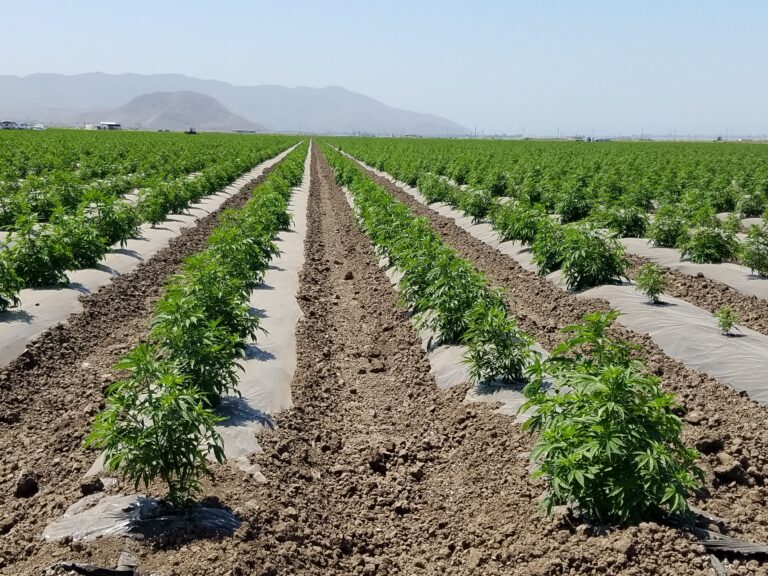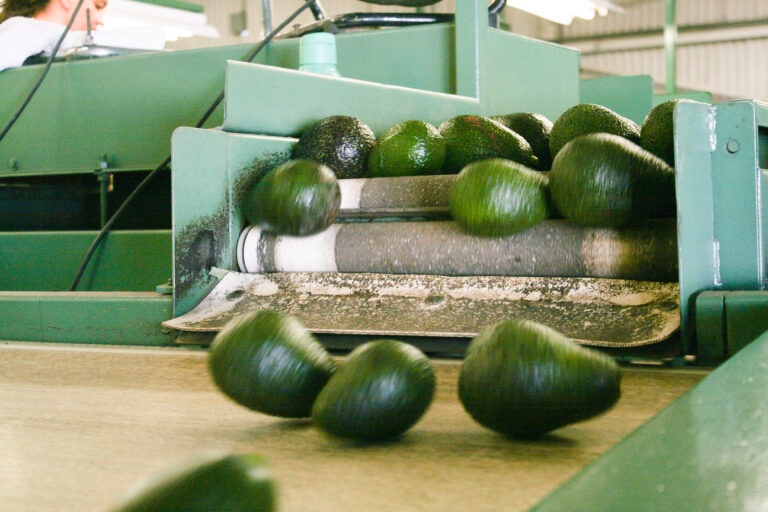Pest Exclusion & Plant Quarantine
The Pest Exclusion Program aims to prevent the introduction of harmful pests into the state. When a harmful pest is discovered, the program works to eradicate it.
As the first line of defense against invasive pests, pest exclusion involves inspecting incoming commercial and private shipments of plant material to ensure compliance with plant import regulations. Shipments found to be infested or prohibited are subject to regulatory action.
Plant quarantines play a critical role in protecting agriculture and the environment. These quarantines may require origin or destination inspections to confirm that commodities are free of destructive pests, such as insects, nematodes, and plant diseases. Inspections and certifications help safeguard the industry by preventing the spread of pests through regulated movement. Commodities grown in Ventura County are inspected and certified prior to shipment to other states and foreign countries, ensuring compliance with pest-free standards and supporting international and domestic trade.
Asian Citrus Psyllid / Huanglongbing Program
The Asian citrus psyllid (Diaphorinacitri) is a tiny insect that serves as a vector for the Huanglongbing (HLB) disease, a devastating bacterial infection that threatens citrus worldwide. The ACP/HLB Program is a partnership between our department and the CDFA to protect the citrus industry through compliance enforcement, inspections, public outreach, and pest management efforts. By ensuring adherence to regulations, educating stakeholders, and removing HLB-positive trees, the program promotes sustainability and growth for the county’s citrus crops.

High-Risk Pest Exclusion Program
The High-Risk Pest Exclusion Program focuses on early detection and control of harmful pests that threaten agriculture, the environment, and urban landscapes, with pests categorized by severity (A, B, C, D, and Q) to guide responses such as quarantine or eradication.


Industrial Hemp
The Industrial Hemp program helps ensure that registered hemp growers and breeders are harvesting product in compliance with California and Federal Industrial Hemp regulations. All industrial hemp grown in Ventura County must be grown by a California registered hemp grower or breeder and must be harvested with under 0.3% Δ-9 THC. VCAWM inspectors work with hemp growers/breeders to get registered and are Federally certified to test plants before harvest to ensure compliance. Any noncompliant crops must be destroyed. VCAWM also conducts spot inspections to ensure compliance with California and Federal Industrial Hemp Regulations. The Ventura County Hemp Ordinance restricts Industrial Hemp from being grown near sensitive sites, such as schools and residences.
Nursery Inspection
The California Department of Food and Agriculture (CDFA) funds annual inspections of wholesale nurseries to ensure cleanliness and prevent the spread of pests, as nursery stock is a major pathway for pest movement. Inspectors may require treatment for infested stock and send unknown pests to the CDFA Laboratory for identification and risk rating. Severe pests may prompt quarantines or eradication programs, but limited funding often restricts action to the most damaging threats, leaving the industry and public to manage less critical issues. These inspections are vital for protecting agriculture and preventing the introduction of new pests.


Phytosanitary Certificates
Phytosanitary Certificates facilitate the export of agricultural goods to foreign countries by ensuring that commodities are sent free of harmful pests and plant pathogens. In order to certify, federally licensed inspectors must verify the destination country’s import requirements and then inspect for the harmful organisms determined by the destination country. Sometimes additional field inspections, lab tests or treatments by the exporter are also required for certification. State phytosanitary certificates are also issued for product sent to other states and American territories. Accuracy in inspection and issuance of Phytosanitary certificates is critical to ensure that exported goods can pass through foreign customs with no delays.
Deputy Agricultural Commissioner
Pest Exclusion & Plant Quarantine
David Wirta
(805) 388-4222 ext. 7165
